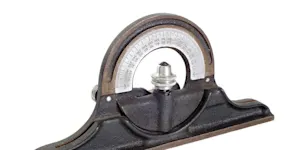What Makes This Word Tick
"Obeisance" carries a sense of respect and submission, often suggested through a gesture like a bow or curtsy. It's an act that indicates deference and homage, usually reserved for figures of authority or reverence. In a world that spins fast on the axes of independence and equality, "obeisance" hearkens back to times when hierarchy ruled the day.
If Obeisance Were a Person…
If "obeisance" were strutting about town as a person, it would wear a smartly pressed uniform, always polished, with a nod of acknowledgment and a bow for each encounter. With mannerisms reminiscent of a gentleman from the Regency era, "obeisance" would be that rare character in the crowd, quietly commanding respect on account of its impeccable manners.
How This Word Has Changed Over Time
Historically, "obeisance" has clung to its roots firmly embedded in gestures of respect. While it has maintained its formal connotation throughout the centuries, modern usage can sometimes carry a hint of irony or parody, reflecting the more equalitarian society of today. It hasn’t wandered far from its purpose, though might be more often found in literature than in the everyday exchange.
Old Sayings and Proverbs That Use Obeisance
Proverbial wisdom seldom centers around "obeisance" directly, yet age-old sayings involving bows and curtsies often implicitly reference it. For example, the notion "a gesture speaks a thousand words" could onboard obeisance as its unofficial ambassador, capturing that nuanced interaction without uttering a single word.
Surprising Facts About Obeisance
Did you know that "obeisance" originally derives from the Old French word "obeissance," linked to "obeir," meaning to obey? It's maintained a dignified presence in English since the 14th century, consistently emblematic of manners and respect. It's a reminder of the cultural importance attributed to gestures over words.
Out and About With This Word
In today’s world, "obeisance" is most likely to pop up in settings with ceremonial gravitas—think of a royal court, a historic play, or even in the military when soldiers salute. Its presence elevates these moments with an age-old aura of formality and deep-seated tradition.
Pop Culture Moments Where Obeisance Was Used
Though not dominating the pop limelight, "obeisance" makes appearances in films and series with regal themes or historical dramas. Whenever a character drops to one knee or bows deeply, "obeisance" is subtly lifting the curtain, showcasing a glimpse of timeless respect and allegiance.
The Word in Literature
"Obeisance" has graced the pages of many literary works, particularly those embedded in settings where formalism reigns. You might find it in Shakespearean drama, where lords and ladies execute formal bows with nuanced poise, or in Victorian novels, capturing an era when social structures were deeply respected.
Moments in History with Obeisance
In the annals of history, obeisance was a central feature of courtly life. Picture the court of Louis XIV, the Sun King, where nobles flitted about in a ritualistic dance of bows and curtsies. Each gesture of obeisance reinforced social standing in the opulent halls of Versailles.
This Word Around the World
Around the globe, acts of obeisance may vary but carry the same heart of respect. In Japan, the bow is a fundamental aspect of greeting, while in India, touching an elder's feet is a gesture of obeisance. These cultural practices highlight how universal the impulse to show reverence can be.
Where Does It Come From?
"Obeisance" springs from Middle English, heavily laden with influences from Old French and Latin. Its etymological journey through languages is marked by a steadfast link to the broader concept of obedience, a root it shares with similar words reflecting hierarchical deference.
How People Misuse This Word
Sometimes "obeisance" is confused with mere acknowledgment or a casual greeting when, in fact, it's more accurately reserved for occasions of noticeable respect or formal reverence. Its misuse often stems from a dilution of understanding around hierarchical interactions.
Words It’s Often Confused With
Obedience: While closely related, obedience refers more to compliance with orders, whereas obeisance is about showing respectful gestures.
Salutation: Another term for a gesture or utterance, but lacks the depth of deference inherent in obeisance.
Homage: While it implies deep respect, homage often represents a declaration or tribute, not necessarily a physical gesture.
Additional Synonyms and Antonyms
When it comes to synonyms, think of words like reverence, respect, and bow. For antonyms, consider disrespect, disdain, or defiance—terms that suggest a lack of the respect "obeisance" embodies.
Want to Try It Out in a Sentence?
"When meeting the queen, he made a deep obeisance, lest a simple nod be considered rude."
















